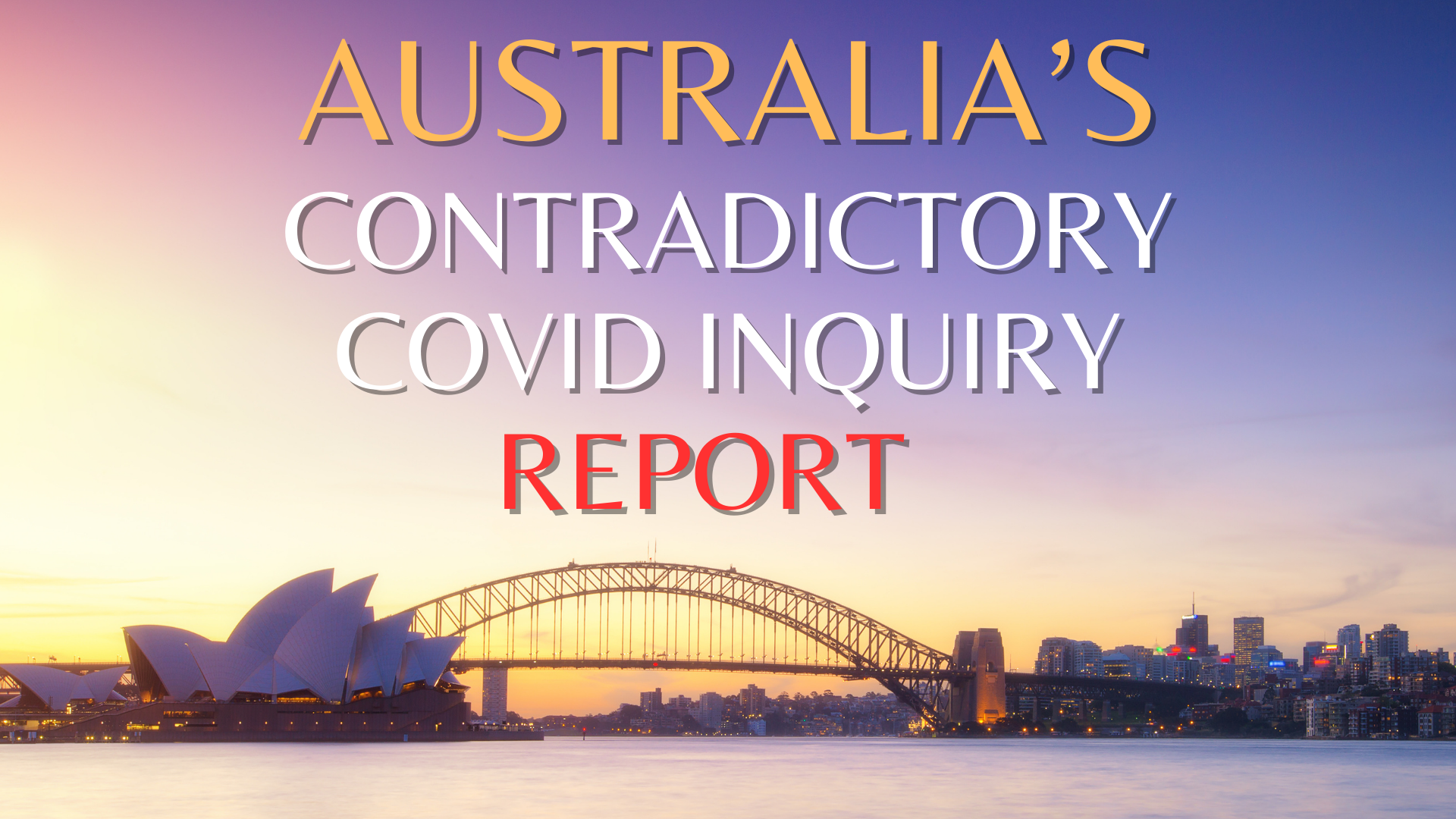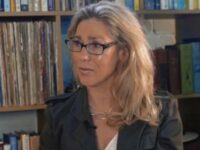Australia’s Contradictory Covid Inquiry Report
A comment piece by Lucy Johnston.

It was hailed as an exemplar of lockdown. Now a new report suggests Australia has also learned lessons about the harms of its Covid suppression measures – arguably some of the most draconian in the world. But a closer look at the 670 page independent Australian Covid-19 Response Inquiry Report finds that its conclusions are strangely contradictory.
The document – released last week and which took a year to produce – involved 2201 submissions from focus groups, industry and community groups as well as decision makers and “officials from all levels of government.”
At first glance the document seems to accept unrepeatable mistakes were made. It acknowledges many lockdown harms, including the impact of school closures, loss of liberty, human rights abuses and lost trust in Government. It accepts “social isolation” and “quarantine” as well as “lockdowns” and “border closures” had a disproportionate effect on the mental health of vulnerable people “which will be felt for some time.”
“It is clear,” the report states, “these impacts were not appropriately considered .. and must not be repeated in a future health emergency.”
So far so good. Many scientists and many other voices warned about such harms before and during lockdown. Many of these voices were suppressed or censored. Now, four years on, it seems at last many people are beginning to realise how much lockdown measures cost the economy, and devastated the mental and physical health of the population as well as the life chances of the poorest, youngest and most vulnerable.
But paradoxically the report concludes rather than avoid making similar mistakes again in the ‘next pandemic’ we should prepare to do the same all over again – although this time with more planning to mitigate these lockdown harms. For example, the report indicates closing schools – never recommended by the country’s Health Protection Principal Committee – did little, if anything, to stop Covid spreading. It also acknowledges school shutdowns had a devastating impact on the mental health and education of children.
You might assume the authors would recommend a different approach next time. It could accept that the Australian health protection committee was right and conclude there was no justification for any school closures – a huge error which should never be repeated. Instead it concludes there should be new investment in remote learning suggesting that somehow this will help fix the problem. As many psychologists or educationalists know, online school is not school. Being able to mix with people, learn social skills, how to build relationships and practice sport are among the very many things that are key to a school experience and to a developing brain. This could never be achieved in online lessons, no matter how much is invested.
The report highlights its relatively low excess death rate at the start of the pandemic as a sign of success. But the authors seem to ignore the fact that much of Australia’s initial lower death toll during the height of the pandemic was down to geography. Australia is not only isolated but was also hit by Covid at the end of the southern summer when people are less vulnerable to respiratory viruses. By the time the country did reopen, the virus also had evolved and changed to a milder form. More importantly, the early assessment of low excess deaths in the first two years didn’t account for the following two years when Australia recorded substantial excess non-covid deaths. As all public health experts should know, pandemics kill people in two ways directly, or indirectly – via disruption. Excess deaths during the post pandemic years have been much higher in Australia compared to non-lockdown Sweden.
In another example, the report finds that the public lost trust in public health as a result of vaccine mandates. This led to a drop in routine childhood vaccinations. While it gives no evidence the vaccine mandates slowed transmission of Covid it also refuses to accept the idea that such mandates were not justified. Instead it calls for new recommendations about how better to roll out ‘future use of vaccine mandates.’
As recent research by Professor David Paton, an health economist at the University of Nottingham has shown, vaccine mandates may have actually done more harm than good by prompting health workers to quit in protest.
Prof David Livermore, a former senior scientist at the Health Protection Agency – now the UK Health Security Agency – said:
“Despite the devastating criticisms, the authors believe Australia’s approach was broadly a success. The recommendations pay lip service to civil liberties. They do not say lockdowns, mask mandates and vaccine mandates must never be repeated in a free country.”
Is it possible that those in and around power do not want to admit they got it wrong?
Many say the ongoing UK Covid inquiry – bigger, longer, more expensive and more legalistic than the Australian inquiry – is also failing to ask the same critical questions.
Should we have carried out lockdowns at all? Should we have followed our normal public health strategy – favoured by non-lockdown Sweden – which is to educate, advise and support those in need rather than try to play God and ‘suppress the virus?”
These are the critical questions that the Australia report, at 670 pages long, should have asked.
